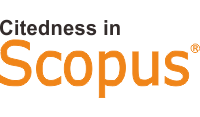Regulatory Evolution and Challenges in Aceh’s Sharia Financial System: A Study of Qanun Reforms
DOI:
https://doi.org/10.46870/milkiyah.v4i2.1598Keywords:
Economy , Financial Institution, QanunAbstract
As a province operating under Sharia law, Aceh has implemented a Sharia economic system that covers all sectors, including financial institutions. The basic regulation for this system, Qanun Aceh No. 11 of 2008 on Sharia Financial Institutions, establishes the initial framework. However, broader development requires regulatory improvements. This study examines the transformation of the Qanun and its implications for the Islamic economic system in Aceh. Using a normative-empirical legal approach, this study analyses Qanun and field data from Banda Aceh and Lhokseumawe. Informants from the regulatory, banking and community sectors were interviewed. Triangulation and thematic analysis ensured valid findings on the implementation of Islamic economic norms, balancing legal examination with empirical observations of practical challenges and social acceptance. The findings show that although the regulatory framework for Islamic economics in Aceh has developed well, the socio-economic promise of justice and inclusion that it holds is still hampered by implementation gaps, structural barriers, and limited public consensus. The future of Aceh's Islamic economy does not depend on additional legislation, but rather on focused efforts in education, capacity building, and the provision of quality services to build public trust and ensure equitable benefits for all communities. The study highlights legal pluralism studies in decentralized governance and can provide framework for analysing sharia-based economic development models.
References
Al-afify, H. Z., & Firmansyah, M. (2025). Penerapan Qanun Jinayat di Aceh. Al-Tarbiyah : Jurnal Ilmu Pendidikan Islam, 3(1), 188–197. https://doi.org/10.59059/al-tarbiyah.v3i1.1956.
Ascarya. (2022). The role of Islamic social finance during Covid-19 pandemic in Indonesia’s economic recovery. International Journal of Islamic and Middle Eastern Finance and Management, 15(2), 386–405. https://doi.org/10.1108/IMEFM-07-2020-0351
Atif, M., Bottura, M., & Yasin, R. (2024). Public issues and public expectations: Disentangling responsibility discourse dimensions in CSR and sustainability books. European Management Journal, 42(6), 957-967. https://doi.org/10.1016/j.emj.2023.07.008
Aziz, J. A., Besar, H., Azrin, M. H., & Dahlan, A. (2024). The Role of the Islamic Community and Government in the Development of Islamic Finance in Brunei Darussalam. Pakistan Journal of Life & Social Sciences, 22(2).https://doi.org/10.57239/PJLSS-2024-22.2.00809
Azmi, S., & Kasmiarno, K. S. (2024). the Efficiency and Effectiveness of Zakat Institution and Its Contribution To Sustainable Development Goals (Sdgs): a Case Study of Baitul Mal, Aceh Barat Daya Regency (2019-2023). International Student Conference on Economics and Business Excellence (ISCEBE), 1(1), 484–492. https://doi.org/10.33830/iscebe.v1i1.4348.
Bawono, R., Dayyan, M., & Faisal, F. (2023). Perlukah Sanksi Pidana Ekonomi Syariah di Aceh? Jurisprudensi: Jurnal Ilmu Syariah, Perundang-Undangan dan Ekonomi Islam, 15(2), 373–387. https://doi.org/10.32505/jurisprudensi.v15i2.5693
Bin-Armia, M. S., Armia, M. S., & Syarif, M. F. (2024). Economical rights versus God’s rights: criticising of the implementation Shariah economic in Indonesia. International Journal of Islamic and Middle Eastern Finance and Management, 17(6), 1267–1290. https://doi.org/10.57239/PJLSS-2024-22.2.00809
Bukhari, B., & Azwir, A. (2025). Moderasi Beragama di Aceh: Jalan Tengah dalam Keberagaman Syariat dan Nasionalisme. Moderation: Journal of Religious Harmony, 1(2), 54–62. https://doi.org/10.47766/moderation.v1i2.4783
Daly, S., & Frikha, M. (2016). Islamic finance: Basic principles and contributions in financing economic. Journal of the Knowledge Economy, 7(2), 496-512. https://doi.org/10.1007/s13132-014-0222-7
Duhriah, Yati, F., & Asmadia, T. (2022). Syuf’ah dan Kearifan Lokal Hak Langggeih dalam Pengembangan Ekonomi Syariah Di Provinsi Aceh. UIN Padang.
Fahira, J. (2024). Kebijakan Politik Kolonial Belanda Dalam Menaklukkan Aceh. Wathan: Jurnal Ilmu Sosial Dan Humaniora, 1(1), 1-11. https://doi.org/10.71153/wathan.v1i1.25
Farhana, I., Markham, C., & Basri, H. (2022). Implementing Islamic principles and values in public budgeting: a battle of mindset. Journal of Islamic Accounting and Business Research, 13(3), 444–463. https://doi.org/10.1108/JIABR-01-2021-0015
Farkhani, Badwan, Berutu, A. G., Zulkarnain, & Irfanudin, F. (2023). Legal Protection of Minority Rights: Study on the Implementation of Qanun Number 6 of 2014 Concerning the Jinayat Law in Langsa City, Aceh Special Region Province. Al-Manahij: Jurnal Kajian Hukum Islam, 17(2), 215–232. https://doi.org/10.24090/mnh.v17i2.7897
Handayani, W., Haniffa, R., & Hudaib, M. (2018). A Bourdieusian perspective in exploring the emergence and evolution of the field of Islamic microfinance in Indonesia. Journal of Islamic Accounting and Business Research, 9(4), 482-497. https://doi.org/10.1108/JIABR-10-2017-0142
Hasibuan, S., Arianto, N., & Marzuki, D. I. (2025). An Examination of Refressive Da ’ wah in Khaled Aboe El-Fadl ’ s Perspective on the Implementation of Qanun Syariah in Aceh. WAILATUNA:Jurnal Komunikasi dan Penyiaran Islam, 08(01), 65–72. https://doi.org/10.38073/wasilatuna.v8i01.2149
Hassan, M. K. (2013). Ethical principles of Islamic financial institutions. Journal of Economic Cooperation and Development, 34(1), 63-90. https://ssrn.com/abstract=3263118
Kamal, H. (2023). Kesiapan Mahkamah Syariah Kota Lhokseumawe terhadap Penyelesaian Sengketa Ekonomi Syariah Pasca Qanun Nomor 11 Tahun 2018. Jurnal Hukum Ekonomi Syariah, 7(01), 19–32. https://doi.org/10.26618/j-hes.v7i01.11075
Kamal, S., Muslem, M., Mulyadi, M., & Berakon, I. (2024). The spirit of Islamic economics versus loan sharks: investigating intentions to use loan sharks in Aceh, Indonesia. Journal of Islamic Marketing, 15(11), 3023–3047. https://doi.org/10.1108/JIMA-09-2022-0254
Lingga, B. I., Barus, U. M., Thaib, Z. H., & Yefrizawati, Y. (2022). Analisis Yuridis Akta Peralihan Kredit Pasca Berlakunya Qanun Aceh No. 11 Tahun 2018 Tentang Lembaga Keuangan Syariah (Studi Pada PT. Bank Rakyat Indonesia Syariah Cabang Kuala Simpang). Jurnal Hukum KAIDAH, 22(1), 41. https://doi.org/10.30743/jhk.v22i1.6032
Marzuki, M., & Media, A. (2023). Implementasi Qanun Aceh Nomor 11 Tahun 2018 Tentang Lembaga Keuangan Syariah Dalam Penguatan Syariat Islam Di Kabupaten Pidie. Jurnal Real Riset, 5(1), 249–258. https://doi.org/10.47647/jrr.v5i1.1161
Maulana, H. R., Misran, & Muslem. (2014). Sanksi Pidana Terhadap Non-Muslim Yang Melanggar Qanun Jinayah Dalam Putusan Hakim Di Mahkamah Syar’iyah Banda Aceh. Legitimasi: Jurnal Hukum Pidana dan Politik Hukum, 10(2), 1–20 https://doi.org/10.25216/jhp.11.1.2022.21-42.
Muhammaddiah, Muhammad Rusdi bin & Muhazir. (2021). DINAMIKA HUKUM ISLAM DAN PERUBAHAN SOSIAL DI ACEH (Upaya Membangun Hukum Pindana Islam yang Responsif Dan Dinamis). Legalite : Jurnal Perundang Undangan dan Hukum Pidana Islam, 6(1), 1–23. https://doi.org/10.32505/legalite.v6i1.2918
Perdana, P., Ruhendi, A., & Sa’diah, D. S. (2022). Implementation of Aceh Qanun No. 11/2018 on Sharia Financial Institutions and its Relationship with Usury Practices in Alue Dawah Village Community. Al-Muamalat: Jurnal Ekonomi Syariah, 12(1), 1–7. https://doi.org/10.15575/am.v8i2.12901
Quack, S. (2010). Law, expertise and legitimacy in transnational economic governance: an introduction. Socio-Economic Review, 8(1), 3-16. https://doi.org/10.1093/ser/mwp029
Rahmawati, Y., Ihsan, D. N., Amelia, E., & Al Arif, M. N. R. (2024). Conversion into full-fledge islamic banks and it’s impact on asset: evidence from indonesian islamic banking industry. International Journal of Professional Business Review: Int. J. Prof. Bus. Rev., 9(4), 1. https://dialnet.unirioja.es/servlet/articulo?codigo=9503254
Rasyid, L. M., Sastro, M., Law, F., Malikussaleh, U., Bukit, K., & Lhokseumawe, I. (2017). Model Corporate Social Responsibility Based on Local Wisdom in West Aceh Regency. Emerald Reach Proceedings Series, 1, 215–220. https://doi.org/10.1108/978-1-78756-793-1-00079
Ridwan, R. (2018). Legislasi Hukum Ekonomi Syariah Dalam Bingkai Hukum Nasional Indonesia. Al-Risalah: Forum Kajian Hukum dan Sosial Kemasyarakatan, 16(01), 95–111. https://doi.org/10.30631/alrisalah.v16i01.338
Safitri, R., Anzaikhan, M., & Anzely, R. (2021). Implementasi Qanun Lembaga Keuangan Syariah dalam Konversi Perbankan Syariah di Aceh. Jurnal Ekombis, 44, 30–41. https://doi.org/10.35308/ekombis.v7i2.4046
Sanola, M. (2022). Implementasi Qanun Aceh Nomor 11 Tahun 2018 Tentang Lembaga Keuangan Syariah di Kabupaten Aceh Tengah (Studi Kasus Bank Kovensional BNI, Mandiri dan BRI). MUBEZA : Pemikiran Hukum dan Ekonomi Islam, 12(1), 1–7.
Sugiyono. (2019). Metode Penelitian Pendidikan (Kuantitatif, Kualitatif, Kombinasi, R&D dan Penelitian Pendidikan). Afabeta.
Hasibuan, S. (2023). Perdebatan Penerapan Syariat Islam Sebagai Gerakan Politisasi Dakwah: Studi Kasus Qonun Syariah di Aceh. Hijaz: Jurnal Ilmu-Ilmu Keislaman, 2(2), 45–50. https://doi.org/10.57251/hij.v2i2.821
Syamsuri, Fadillah, N. H., Kusuma, A. R., & Jamal. (2021). Analisis Qanun (Lembaga Keuangan syariah) Dalam Penerapan Ekonomi Islam Melalui Perbankan Syariah di Aceh. Jurnal Ilmiah Ekonomi Islam, 7(03), 1705–1716. https://doi.org/10.29040/jiei.v7i3.3662
Umam, K., Fedro, A., Isro’i, M. I., & Ekayani, M. (2024). Striking the balance: Fiqh Bi’ah and Productive Waqf Forests (PWFs) for sustainable forest management in Indonesia. Journal of Islamic Accounting and Business Research, ahead-of-print(ahead-of-print). https://doi.org/10.1108/JIABR-03-2024-0090
Yahya, A., Yusri, Y., Adwani, A., Adli, M., & Jafar, M. (2023). Legal Study of Building Sharia-Based Investment in Aceh: The Challenges After the Enactment of the Qanun of Sharia Financial Institution. Samarah: Jurnal Hukum Keluarga Dan Hukum Islam, 7(2), 959-977. https://doi.org/10.22373/sjhk.v7i2.17653
Yanti, I. (2020). Penetapan Harga Jual Beli Ikan oleh Toke Bangku Di TPI Lampulo, Aceh, Indonesia ditinjau dari Perspektif Adat dan Ekonomi Islam. Ar-Raniry, International Journal of Islamic Studies, 7(2), 103–114. https://doi.org/10.22373/jar.v7i2.10979
Zada, K. (2023). Sharia and Islamic state in Indonesia constitutional democracy: an Aceh experience. Ijtihad : Jurnal Wacana Hukum Islam dan Kemanusiaan, 23(1), 1–18. https://doi.org/10.18326/ijtihad.v23i1.1-18
Zulfahmi. (2021). Eksistensi Qanun Nomor 11 Tahun 2018 tentang Lembaga Keuangan Syariah terhadap Konversi Bank Konvensional menjadi Bank Syariah. Jurnal Hukum Ekonomi Syariah, 5(1), 49–63. https://doi.org/10.26618/j-hes.v5i01.3276.
Downloads
Published
How to Cite
Issue
Section
License
Copyright (c) 2025 Nandang Ihwanudin, Muhammad Rafi Siregar, Ahmad Rifai, Achmad Manarul

This work is licensed under a Creative Commons Attribution-ShareAlike 4.0 International License.

















